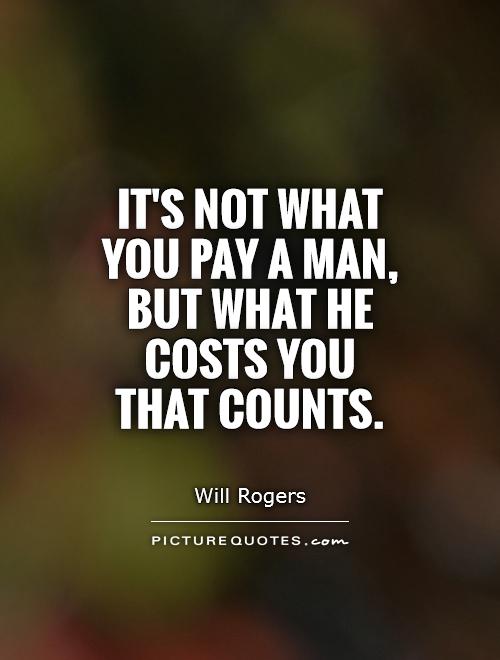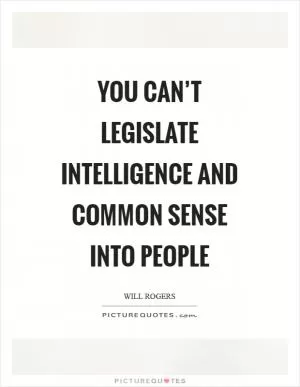It's not what you pay a man, but what he costs you that counts

It's not what you pay a man, but what he costs you that counts
Will Rogers, a beloved American humorist and social commentator, once famously said, “It's not what you pay a man, but what he costs you that counts.” This statement holds a profound truth that transcends time and remains relevant in today's society.In the context of business and leadership, Rogers' words serve as a reminder that the true value of an employee or a service provider is not solely determined by their salary or hourly rate. Instead, it is the overall impact they have on the organization, including their productivity, efficiency, and the quality of their work, that truly matters. A high salary does not necessarily equate to high performance, and a low salary does not necessarily mean low value. It is the total cost of employing an individual, taking into account their contributions and the results they deliver, that ultimately determines their worth to the organization.
Furthermore, Rogers' words also highlight the importance of considering the hidden costs associated with hiring and retaining employees. These costs may include training and development expenses, turnover costs, lost productivity, and the impact on team morale and culture. By focusing on the total cost of employing an individual, rather than just their salary, organizations can make more informed decisions about recruitment, compensation, and performance management.












 Friendship Quotes
Friendship Quotes Love Quotes
Love Quotes Life Quotes
Life Quotes Funny Quotes
Funny Quotes Motivational Quotes
Motivational Quotes Inspirational Quotes
Inspirational Quotes